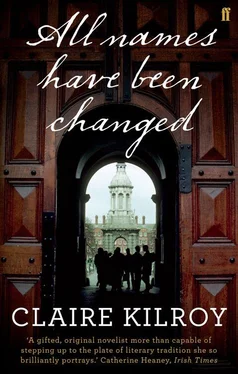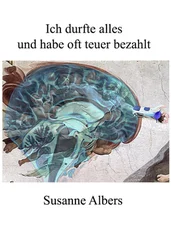Claire Kilroy - All Names Have Been Changed
Здесь есть возможность читать онлайн «Claire Kilroy - All Names Have Been Changed» весь текст электронной книги совершенно бесплатно (целиком полную версию без сокращений). В некоторых случаях можно слушать аудио, скачать через торрент в формате fb2 и присутствует краткое содержание. Год выпуска: 2010, Издательство: Faber & Faber, Жанр: Современная проза, на английском языке. Описание произведения, (предисловие) а так же отзывы посетителей доступны на портале библиотеки ЛибКат.
- Название:All Names Have Been Changed
- Автор:
- Издательство:Faber & Faber
- Жанр:
- Год:2010
- ISBN:нет данных
- Рейтинг книги:5 / 5. Голосов: 1
-
Избранное:Добавить в избранное
- Отзывы:
-
Ваша оценка:
- 100
- 1
- 2
- 3
- 4
- 5
All Names Have Been Changed: краткое содержание, описание и аннотация
Предлагаем к чтению аннотацию, описание, краткое содержание или предисловие (зависит от того, что написал сам автор книги «All Names Have Been Changed»). Если вы не нашли необходимую информацию о книге — напишите в комментариях, мы постараемся отыскать её.
All Names Have Been Changed — читать онлайн бесплатно полную книгу (весь текст) целиком
Ниже представлен текст книги, разбитый по страницам. Система сохранения места последней прочитанной страницы, позволяет с удобством читать онлайн бесплатно книгу «All Names Have Been Changed», без необходимости каждый раз заново искать на чём Вы остановились. Поставьте закладку, и сможете в любой момент перейти на страницу, на которой закончили чтение.
Интервал:
Закладка:
Of course, we were clear that Glynn had not written about us, but that in writing about himself, he had formed us. And because we believed we were of a mind, it led to this misconception that we knew him, that we understood him, and that we loved him. Events thus gained a momentum they might not have otherwise. We thought he would be pleased, and in the beginning he was. Or not so much pleased as gratified.
You may ask how it was that the five of us came together, but you might not — indeed Glynn might not — accept our answer: We came because he called us. Glynn set down his words knowing they would mean nothing to most, but everything to a few. We, those few, heard his siren song and followed it, having little alternative under the inhospitable circumstances. He wanted his art to be a dangerous force, alive. Well then, you might say he got what he asked for.
2 The pipes, the pipes are calling
When Glynn published Hibernia in 1981, a public reading was organised in the Meeting Room of the Royal Irish Academy to mark the occasion of this, his first novel in four years. The attentive response was in no small part due to the success the writer had for many years enjoyed in North America.
Advertisements were placed the week beforehand in the Irish Times and Irish Press . We all, it turns out, saw them. This fact is remarkable for its improbability, and not just because the advertisements were scrupulously mean (though even in eight-point font, Glynn’s name leapt screaming off the page at us, as if it were our own names we saw printed there) but mainly since none of us much troubled ourselves with newspapers. Too ephemeral. Lasting monuments of art were what was wanted.
We did not know each other, or of one another. Our backgrounds were what you might call diverse, by Irish standards. Beyond our love of Glynn, we shared nothing in common, not a blessed thing.
Guinevere and Aisling were the closest in age, hardly out of their teens back in ’81, and still living with their parents at opposite ends of Dublin Bay — Bray and Howth respectively. The two headlands regarded each other benignly across the broad curve of sea, desultorily flashing lighthouse beams at one another, batting commuter trains back and forth.
Faye had travelled all the way from Clonmel to attend, although the Feast of the Immaculate Conception, the day she traditionally came up on the train to Dublin to do her Christmas shopping, wasn’t for another fortnight. The Christmas window in Switzers had yet to be unveiled, so it wasn’t quite the same, she later told us, quickly adding that it didn’t matter, it was fine, she didn’t really mind. She was asked by the porter to leave her crammed shopping bags behind in the cloakroom, such was the mill caused by Glynn.
Antonia, in the painful throes of marital separation at the time, mentioned that she had entered a period of depression so bleak, so hopeless, so self-defeating, that she no longer, if she could help it, left the house. She made an exception for Glynn that night. Her hair, she realised as she slipped into the last vacant seat, which was right in the middle of the front row where everyone could see her (‘just my luck’), hadn’t even been brushed that day. I broke into laughter. This, I could not envisage. Antonia’s impeccable grooming, her expensive glossiness, was key to the woman she was, or to the woman I thought she was. ‘I know,’ she agreed, tapping cigarette ash into the brown glass ashtray. She went on to pinpoint that evening in the Royal Irish Academy as the first step in her journey back to what she called ‘civilisation’, enunciating the term with the caustic irony she so often employed in an attempt to mask her vulnerability.
Four years passed after Glynn’s Academy reading before the five of us came together in House Eight. It took us a number of weeks to establish that we had all been in attendance that wet night in ’81. The discovery was made during one of those landmark late-night marathon sessions in Bartley Dunne’s which consolidated us from five individuals into a bona-fide group. Those conversations often lasted longer than a working man’s day and revealed (to our surprise) that here were five people who badly needed to talk. Enormous revisions to our self-conceptions were incurred by this revelation. Each of us had learned to regard ourselves as solitary to the core. A predominant characteristic of our group was that none in it had been part of one before. The experience was disarming. Within a short period, our guards were down, strewn about us like discarded coats on a hot day. Defences were no longer necessary, as interacting with each other was not unlike interacting with aspects of ourselves. Alcohol, naturally, was a catalyst.
Once securely within the fold, we allowed ourselves to acknowledge the true extent to which we’d privately longed to feel part of a group. This was not a desire any of us would have owned up to in the past, describing ourselves variously as ‘loners’, ‘outsiders’, ‘misfits’ and so on, clamouring to outdo each other with such labels as if they were badges of honour, hallmarks of authenticity. Antonia even went so far as to apply the adjective ‘cold’.
Significantly, not one of us reached for the term ‘lonely’. That would have constituted an admission of defeat. Over the preceding years, as a protective measure, we had come to regard the need for companionship as something to be disdained, as if the natural impulse to share your life with another human being were a weakness, not a strength. It wasn’t until we had come in from the cold and thawed ourselves at the fireside of each other’s company that we realised how perished, how neglected, we’d been. Guinevere told me in confidence that there were times during the infancy of the group, as it took its first trembling steps, when she could have cried with relief, this new sense of kinship being so unprecedented, and so welcome. She had never dared hope to belong either. It was the last thing you’d expect a beautiful girl to say.
We fell silent and exchanged meaningful glances over our pints at the discovery that the five of us separately and unbeknownst to one another had come to hear Glynn speak that night. That we had all spotted the newspaper ad was of particular note. So small, so unassuming, no bigger than a matchbox. That ad was certainly, we agreed, barely noticeable, and yet … In those early days, we thrived on coincidences of such a nature, being engaged in the great project of constructing our collective mythology, like married couples rehearsing the story of how they met, so that everything, in retrospect, seems predestined. That five strangers at different stages in their lives had gravitated toward Glynn like pilgrims toward a star proved that there was such a thing as fate, and that we were firmly in the grip of it. This desperation for justification is common to all who have taken risks that have yet to pay off.
The weather was especially foul the night of Glynn’s reading. The Irish winter threw its entire repertoire at us. Thunder, lightning, sudden downpours, blasting gales, fleeting glimpses of stars. We grimly recalled those adverse conditions which tested our commitment, and did not find it wanting. A torrent of rain had started to fall in Ireland in 1980, after the largely sunny decade that was the seventies. Once the rain started, it did not seem to know how to stop. It rained so heavily and so steadily that we started wondering where it was coming from. Then we wondered whether it could keep coming from there. There was so much of it, we were surely leaving another part of the world short. The surface water drains quickly clogged with the fallen leaves and detritus carried by the coursing rainwater along the gullies. Flash floods formed wide pools on the pavements and streets. It was, by any stretch of the imagination, a spectacularly filthy night, even for late November. (We can confirm the date as it was Aisling’s birthday.)
Читать дальшеИнтервал:
Закладка:
Похожие книги на «All Names Have Been Changed»
Представляем Вашему вниманию похожие книги на «All Names Have Been Changed» списком для выбора. Мы отобрали схожую по названию и смыслу литературу в надежде предоставить читателям больше вариантов отыскать новые, интересные, ещё непрочитанные произведения.
Обсуждение, отзывы о книге «All Names Have Been Changed» и просто собственные мнения читателей. Оставьте ваши комментарии, напишите, что Вы думаете о произведении, его смысле или главных героях. Укажите что конкретно понравилось, а что нет, и почему Вы так считаете.












